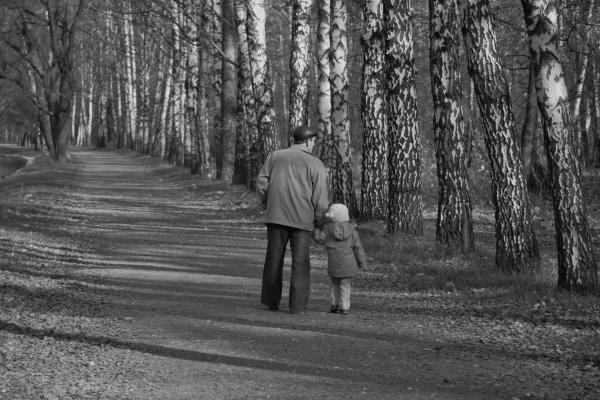WHEN I WAS BORN—the first child of Dan Berrigan’s brother Phil and Elizabeth McAlister—my uncle sent my parents a sheaf of poetry. On it, he wrote a note: “Dears, I send these with trepidation. They are uneven; but then so is life, no? Love, Daniel.”
My parents put the dozen or so poems in a book and gave them to me on my eighth birthday with their own note: “We don’t expect you to understand all of them yet but you can now begin to read and grow with them.” Yet. Right. I am now 34 years older than I was when I first opened the little red bound book of handwritten poems, and I don’t understand them any better.
But now that my dearest Unka has passed from this world, I hold on tight to this collection and try really hard to understand. It is going to be tough. The poems are full of words the dictionary either fails to define or further confuses—supramundane, Blake’s child, Dante’s paradise (what are boys from middle school doing in Unka’s poetry?), “the bodhisattva is neither stuporous nor sleek / he is crucified.”
Fragments of these poems cycle through my head all the time, a sort of back rhythm to daily life, especially when that daily life was graced with Unka.
Uncle Dan and I would walk—down New York City’s Broadway and through Riverside Park. He breathed in such love for the natural world, even amid the Upper West Side’s hustles and bumps. He saw everything, and found the beauty that was there. The only people that made him mad were delivery men riding bikes on the sidewalks—he had been knocked down once by them and he worried about the elderly—and people who lost themselves in their phones.
Read the Full Article

